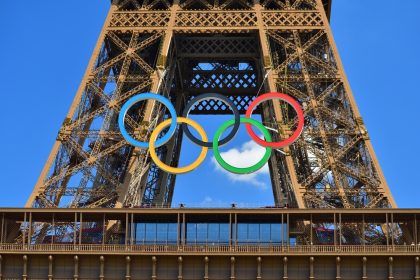 Even 20 years removed, the sight of the unedited version of the Rodney King beating still singes the heart, broils the brain and makes you recoil with every single, violent blow. Even today, even though I know it is an old black and white tape, I want to avert my eyes and yell at the LAPD to stop the homerun swings with solid oak nightsticks upon King’s face, head and eyes.
Even 20 years removed, the sight of the unedited version of the Rodney King beating still singes the heart, broils the brain and makes you recoil with every single, violent blow. Even today, even though I know it is an old black and white tape, I want to avert my eyes and yell at the LAPD to stop the homerun swings with solid oak nightsticks upon King’s face, head and eyes.
The relentless, ruthless beating was so savage, so animalistic that King’s lawyer initially thought that the beatings were taking place in South Africa. Even former President George H.W. Bush said, “It was sickening to see that,” after viewing the video from the Oval Office. “There is no way to explain that away.”
At one point, the LAPD was, by far, the most feared police department in the country. The very acronym “LAPD” was synonymous with danger and death to blacks. The stories of blatant police brutality, notorious unforgivable choke holds and racial profiling were seared into the consciousness of African Americans nationwide like tattoos, especially from such films as Colors and Boyz n the Hood and the many news-generating lawsuits filed by a rising legal star named Johnnie Cochran (pre-OJ Simpson trial). The classic cuts, NWA’s “F— the Police” and Ice T’s “Cop Killer,” both drew resounding rebukes from the highest levels of the U.S. government but, nevertheless, provided another medium to relay the LAPD’s seemingly one-sided war against urbanites.
It seems that the LAPD, however, learned from that day and ensuing riots. Former police chief Bernie Parks, an African American who replaced then-police chief Darryl Gates, immediately implemented wide sweeping changes that would soften the department’s horrid national image. Right away, he appointed minorities to upper echelon positions to more accurately reflect the diverse community they serve.
If anything, the LAPD seems to have progressed while major-city police departments across the country have inexplicably and tragically regressed. It’s hard for blacks to stomach, in the post-Rodney-King-beating era, how a black teenager laying prone on his stomach and handcuffed in a train station can still get shot in the back and killed in Oakland, Calif. It is impossible for us to reconcile how so many unarmed black men keep getting shot 40 and 50 times by the NYPD, now the nation’s most notorious department.
So how much has the country learned? Well, the Rodney King tape, along with, say, the eventual discovery of serial-killer and cannibal Jeffrey Dahmer, showed that police often have made tragic errors when it comes to policing black America and that corruption and criminality are not just being committed by one side.
What has the black community learned in 20 years? We know that Rodney King was no hero or martyr, as he was treated back then, but a very flawed human being whose multiple violations of the law inspired the LAPD to beat him into a pile of jelly. These days, actually, when something like the Rodney King beating has been caught on tape, blacks are more apt to ask, “What did he do?” first as opposed to just wailing reflexively that the police are wrong. –terry shropshire









